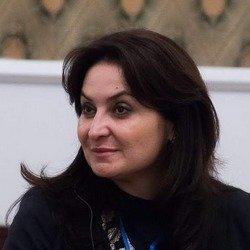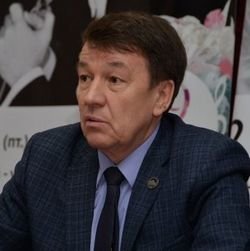Kazan hosts Culture AR/VR Hackathon
AR/VR technologies — as development and respond to the pandemic
The all-Russian hackathon to create intellectual projects in the field of folk art culture using augmented and virtual reality technologies has been held in Kazan. During the two days of the forum Culture AR/VR Hackathon, seven teams created prototypes of digitalization of the rites of the peoples of the Volga Region.
The topics — the rites of the peoples of the Volga Region
The hackathon was participated by 7 teams, consisting of 21 people, students of the Kazan State Institute of Culture, Innopolis University, and the Kazan Art School named after Feshin. Their goal is to create prototypes of digitalisation of the ritual culture of the region in two days.
The results were summed up on October 17. The results will be discussed at the round table discussion 'New Digital Culture' with the participation of leading heads of cultural institutions in Chuvashia, Crimea, Mari El, Mordovia, Udmurtia, Karachay-Cherkessia, and Ulyanovsk Oblast.
Earlier, on September 21-24, a hackathon was organised at the Kazan Digital Week forum to develop services for traveling to cultural sites using virtual and augmented reality. The forum itself hosted the panel discussion 'Digital Transformation in Culture: Trends 2020'. After that, the project 'Lectorium: Modern Technologies in Culture' was held until October 15. Before the hackathon, the participants had the opportunity visit the interactive exhibition Expocult2020.
On October 16-17, participants hold a master class with IT industry experts in the field of working with augmented and virtual reality technologies. The top three teams received prizes.
“It's time for culture, too”
The opening of the hackathon took place online and offline — presenters and several guest artists performed on the stage of the Institute of Culture, and speakers often joined them in Zoom. At the same time, neither the presenters nor the speakers could be heard on Vkontakte because of the background music. It was clear that the hopes for technology were huge.

“A breakthrough in the field of culture, as in other areas of our life, is inextricably linked with digital technologies," continued the director of the Department of Science and Education of the Ministry of Culture of the Russian Federation, Svetlana Yermakova. “Their active implementation and wide use in all spheres — culture, education, science, social and cultural practice — will be the topic of the upcoming discussion for the next two days. Now hackathons are widely spread and are considered by companies as a way to quickly develop computer technologies. It's time for culture, too.

“VR technologies have long found their place in the Republic of Tatarstan," said Radik Gismyatov, the deputy minister of digital development of public administration, information technologies and communications of the Republic of Tatarstan. “In particular, the Bilyar nature reserve, Bolgar and many museums use these technologies so that every citizen of the republic can plunge into the world of culture in the face of the pandemic and restrictive measures.”